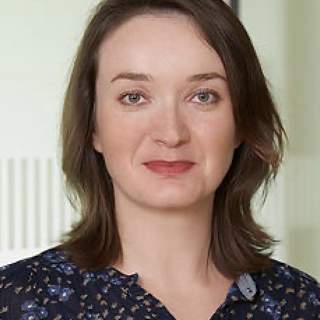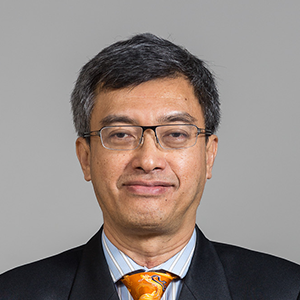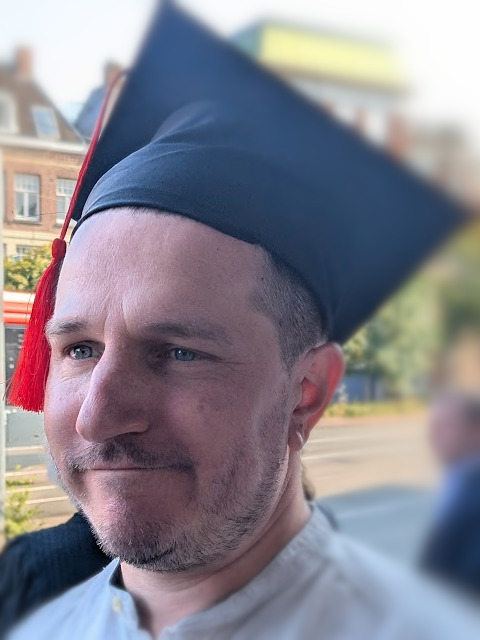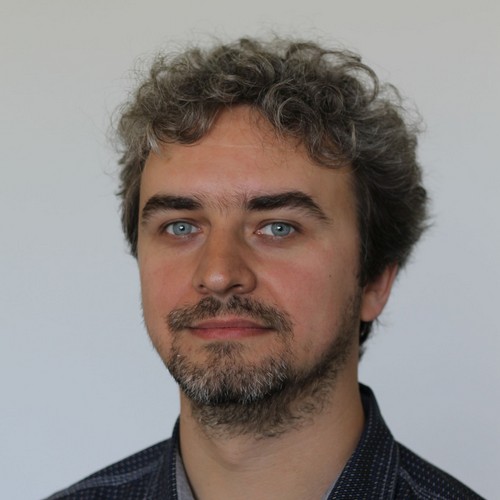Keynote Speakers
Understanding why complex systems fail is a central concern across engineering and formal reasoning disciplines. Over time, distinct communities have developed fundamentally different tools for causal analysis. Fault Trees, rooted in reliability engineering, offer a top-down, structural view of failure propagation. In contrast, the Halpern-Pearl framework for Actual Causality stems from formal logic and artificial intelligence, providing a counterfactual and interventionist account of causation. Drawing from recent joint work, the talk aims to offer both a formal bridge between these traditions and a roadmap for integrating interventions, counterfactuals, and design-time reasoning into classical fault analysis frameworks.
A sequence of elements is said to be bad for a quasi-order if no element of the sequence is larger than or equal to a previous element. A quasi-order is said to be well if every bad sequence is finite. Well-quasi-orders (wqo for short) is a central notion for proving some decidability results. For instance, the termination of the Karp and Miller algorithm relies on a wqo. Intuitively, the proof of termination is obtained by observing that if the algorithm does not terminate, ultimately, it should compute an infinite bad sequence. Wqo can also be used for proving complexity results. By controlling with a function the way elements of a sequence can grow respectively to its position in the sequence, bounds on the maximal length of a bad sequence can be derived. As an example, the length of a bad sequence of vectors of natural numbers for the component-wise ordering is bounded by an Ackermann function for linearly controlled functions. Recently wqo was also used for explaining the data-structures computed by the KLM algorithm, an algorithm for deciding the reachability problem for Petri nets. Intuitively, the data-structures computed by the KLM algorithm are related to the classical notion of decomposition of downward-closed sets into ideals.
In this talk, we will survey past and recent results about wqo with a special focus on the reachability problem for Petri nets.
Rupak Majumdar, Max Planck Institute for Software Systems and Automated Reasoning Group, Amazon Web Services:
Reasoning about Almost Sure Termination (
see abstract)
Almost sure termination, or termination with probability one, is the core liveness property for randomized algorithms.
It is the probabilistic analogue of program termination.
We study proof rules for almost sure termination. While many proof rules for termination were proposed over the years,
none were known to be both sound and complete.
This was in contrast to the non-probabilistic setting, for which we have known complete proof rules for many years.
We show a sound and complete proof rule for almost sure termination.
Using our proof rule, we study some classical randomized distributed algorithms and show how to construct termination proofs.
Wei-Ngan Chin, National University of Singapore:
From Separation Logic to Staged Logic for Higher-Order Programs and Beyond (
see abstract)
Higher-order functions and imperative states are language features
supported by many mainstream languages. Their combination is
expressive and useful, but complicates specification and reasoning,
due to the use of yet-to-be-instantiated function parameters. One
inherent limitation of existing specification mechanisms is its
reliance on only two stages: an initial stage to denote the
precondition at the start of the method and a final stage to capture
the postcondition. Such two-stage specifications force abstract
properties to be imposed on unknown function parameters, leading to
less precise specifications for higher-order methods.
To overcome this limitation, we introduce a novel extension to
Hoare logic that supports multiple stages for a call-by-value
higher-order language with ML-like local references.
In this talk, we introduce our staged logic with its semantics, and
show how it can be used to handle higher-order imperative programs,
including those that arise from the use of delimited continuations
(from algebraic effects).
Traian
Florin Șerbănuță
, University of Bucharest and Pi Squared Inc.:
A Logic-Programming Approach to Arithmetic Circuit Design
–Deriving Zero-Knowledge Certificates from Mathematical Proofs–(
see abstract)
Zero-knowledge (ZK) proof systems have received increasing attention
in recent years, driven in large part by applications in blockchain
and privacy-preserving computation. While many advances have focused
on certifying the correctness of computations with partial information
hidden from the verifier, recent efforts–such as zkUNSAT[1], zkSMT[2],
and zkPi[3]–have begun to explore the use of ZK techniques to certify
mathematical proofs themselves.
This talk introduces a new general-purpose language for expressing
proofs and computations, grounded in principles from logic
programming, and designed to enable the efficient construction of
arithmetic circuits suitable for zero-knowledge proof systems. The
language is implemented as part of PiSquared’s Proof-of-Proof
framework and aims to bridge declarative proof development with
low-level ZK-friendly circuit representations.
We illustrate the approach through a case study on certifying
unsatisfiability refutations, yielding a tool comparable in
functionality to zkUNSAT. The derivation methodology and
circuit-generation process will be illustrated through concrete
examples, highlighting both expressiveness and performance.
References
[1] Luo, N., Antonopoulos, T., Harris, W. R., Piskac, R., Tromer, E.,
& Wang, X. (2022, November). Proving UNSAT in Zero Knowledge. In
Proceedings of the 2022 ACM SIGSAC Conference on Computer and
Communications Security (pp. 2203-2217).
[2] Luick, D., Kolesar, J. C., Antonopoulos, T., Harris, W. R.,
Parker, J., Piskac, R., ... & Luo, N. (2024). zkSMT: A VM for Proving
SMT Theorems in Zero Knowledge. In 33rd USENIX Security Symposium
(USENIX Security 24) (pp. 3837-3845).
[3] Laufer, E., Ozdemir, A., & Boneh, D. (2024, December). zkPi:
Proving Lean Theorems in Zero-Knowledge. In Proceedings of the 2024 on
ACM SIGSAC Conference on Computer and Communications Security
(pp. 4301-4315).
Tutorial Speaker
Alexandru Ipatiov, Continental Automotive Romania SRL:
A Z3 based automated architecture-synthesis tool for automotive industry (
see abstract)
The presentation reveals how Continental chose to pursue the endeavor of automated synthesis of correct-by-design in-vehicle system architectures. Aspects related to types of problems solved, use-cases, necessary models, annotations, typical constraints and optimization objectives are discussed for a realistic automotive system. Implementation alternatives are showcased and thoughts on upcoming challenges are shared with the audience.
Venue
Alexandru Ioan Cuza University
Faculty of Computer Science
Room Călin Ignat (C309, first floor), Building C
16 General Berthelot Street, Iași, România
Travel arrangements
You can reach Iaşi by plane (check the Iași Airport page for details), by train (tickets available via CFR Călători), or by car (the distance to Bucharest is ~400km, 6 hours).
Hotels
We plan to arrange accommodation at Gaudeamus University Hotel, but availability is limited. However, nearby hotels include Hotel Unirea, Hotel Traian, and Apartment Hotel Prestige.
Registration
Please register by filling in this form.
Participants are encouraged to register by September 14,
although registration will remain open until and during the
conference.
The registration fee is 300 euros.
Payment information. If you are not an invited speaker or
you have a fee waiver, please transfer the registration fee to the
following account (mention your name and "FROM 2025" in the transfer):
Account holder: ASOCIATIA ROMANA DE LINGVISTICA COMPUTATIONALA
Account holder address: Iancu Bacalu street, no. 3, Iasi, Romania
Bank : BRD – GROUPE SOCIETE GENERALE
Bank address: Iasi Branch, P-ta Unirii nr.2 Bl. B10 Iasi, Romania
SWIFT: BRDEROBU
Account EURO: IBAN RO19BRDE240SV00697012400
If you would like to apply for a registration fee waiver,
please contact us at andrei.arusoaie@uaic.ro.








